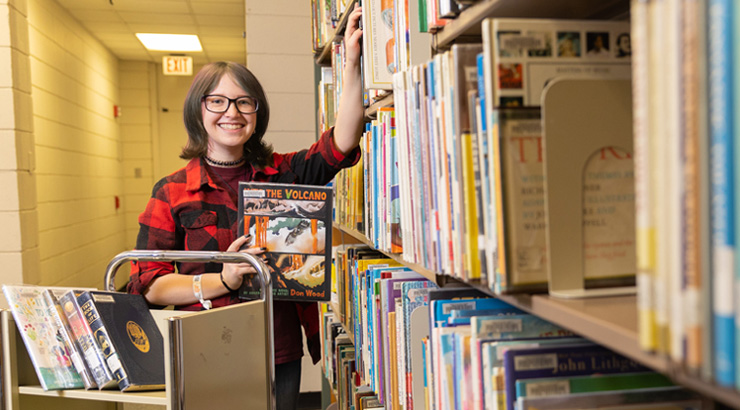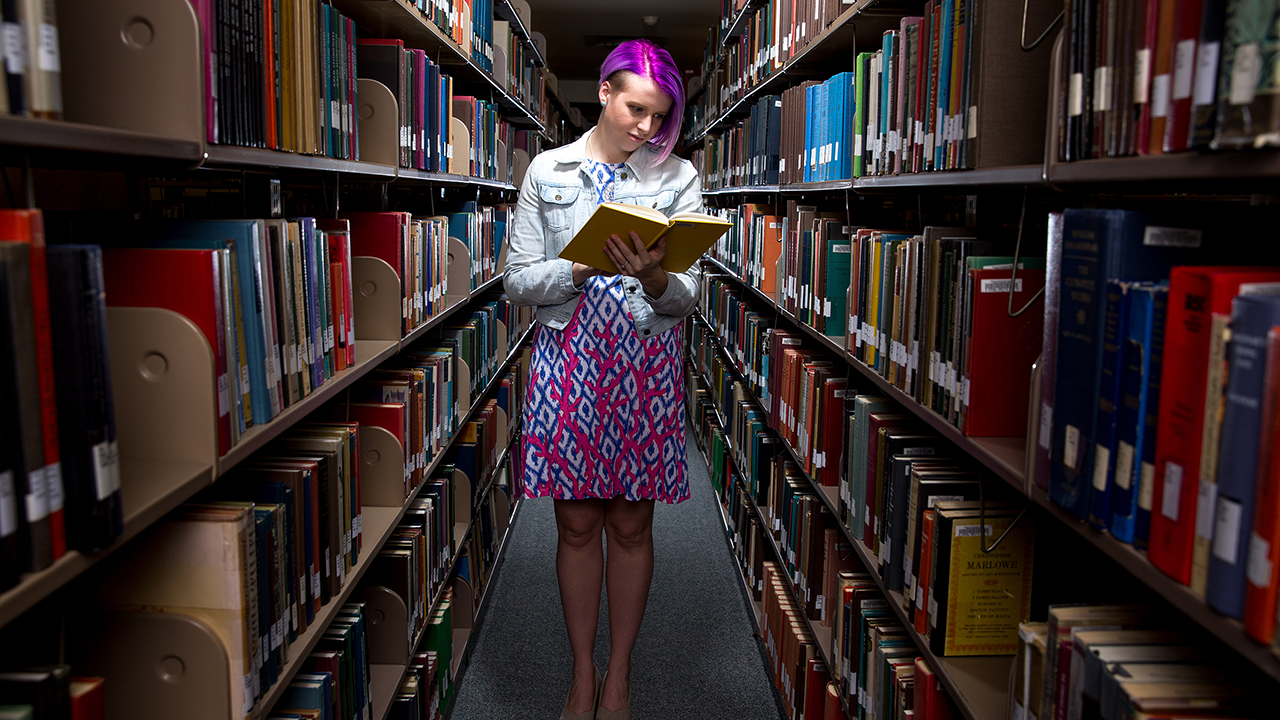
Elementary, Middle Level, Library & Technologies Education
Master of Library Science Degree
Earn an Affordable Online Master’s in Library Science.
Quick Look
OFFERED AS:
Graduate
FORMAT:
Online, In-Person
CREDITS REQUIRED:
36
Want the flexibility to advance your career regardless of your location? Earn an online master’s in library science from Kutztown University, a university with a nearly 100% placement rate for this program.
Whether you want to preserve historical knowledge, support lifelong learning or lead the way in digital libraries, our Master of Library Science degree prepares you to make a positive difference in society.
Why Choose KU for a Master of Library Science Degree
We get it. There are tons of schools to choose from, but Kutztown University offers one of the best library science programs out there for five important reasons (and more):
- We have a nearly 100% placement rate
- We support your passion for knowledge and information management
- We are CAEP-accredited and AASL-recognized (for school library media specialists)
- We offer affordable tuition rates
- We provide both online and in-person course options
One of the top reasons you should choose KU for a Master of Library Science degree is because we care about your career path as much as you. When you thrive in your career, we thrive, too.

Earn a Master of Library Science degree from Kutztown University. Take classes online or in person. The choice is yours!
Master of Library Science Degree Highlights
Our Master of Library Science degree is one of the best library science programs because you will gain a deep understanding of how libraries function in the digital age with a huge focus on information management, technology, research and service to users.
What Will You Learn Exactly?
- Learn cataloging and classification, archival management and metadata and information retrieval.
- Create and manage digital collections and understand how library management systems and databases operate.
- Analyze and organize large datasets and learn how to conduct research.
- Develop services for diverse communities and promote library services for library funding.
- Manage the daily operations of libraries, including budgeting, staffing and policy development.
Student Learning Outcomes
-
Library Science (MLS)
- Students will research and synthesize professional resources to make critical recommendations regarding the curation of resources and development of information and media.
- Students will be collaborative leaders who engage in ethical practices and research and analysis in the use of informational and instructional technologies.
- Students will research, evaluate and recommend effective resources and activities that contribute to their own patrons' lifelong learning while accommodating a wide range or differences in learning styles, interests, and capacities.
- Students will research, evaluate and recommend resources and learning activities that represent a diversity of experiences, opinions, social and cultural perspectives, supporting the concept that intellectual freedom and access to information are prerequisites to effective and responsible citizenship in a democracy.
KU prepared me for a career that allows me to bring my world of interest together daily. Whether it is my love of historic reenactment, integration of technology into teaching and learning, and passion for instilling a love of reading.
Emily Calaman '17, Middle School Teacher, Schuylkill ValleyMaster of Library Science Degree FAQ
-
What can I do with a Master of Library Science degree?
Kutztown University offers one of the best library science programs because we prepare you for a variety of career options, both in traditional library settings and in emerging roles that require specific information management expertise.
According to the U.S. Bureau of Labor Statistics (2023), these are example career paths and national salaries for a graduate with a Master of Library Science degree:
- Public librarian: $64,370
- School librarian (K-12): $54,995
- Archivists, curators & museum workers: $57,120
- Information architect: $134,700
- Records manager: $55,184
- Cataloger/metadata specialist: $64,370
- Data scientist: $108,020
- Museum collections manager: $76,370
- Preservation specialist: $58,113
- Market research analyst: $74,680
-
Should I pursue an online master’s in library science or an in-person degree?
This answer depends on your location and education needs. If you’re working full time while pursuing your degree, we recommend applying to our online master’s in library science. However, if you want the in-person experience, we offer those classes, as well.
-
What are the admission requirements and deadlines?
Application Requirements
Admission Deadlines
- Application
- Official transcripts from all previous colleges or universities
- Teaching Certification or GRE score report
- Three letters of recommendation
Fall semester: August 1st
Spring semester: December 1st
Summer sessions: May 1st
-
Does KU offer a Master of Library Science degree without certification?
Yes. Click here more information about our Master of Library Science degree without certification.






